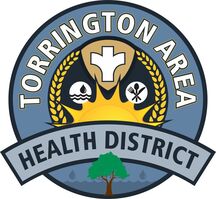Radon Awareness
Connecticut Department of Public Health Environmental Health Section Radon Program 410 Capitol Avenue, MS# 51 RAD Hartford, CT 06134-0308 860-509-7367
Radon: Is Your Home Safe?
Protect your family. Radon is the leading cause of lung cancer in nonsmokers. Radon is radioactive gas that cannot be seen or smelled. It is found in soil and rock in all towns in Connecticut. Radon gas can enter homes through cracks in the foundation and other openings in the lower level of your home. Breathing high levels of radon over a long period of time can damage the lungs and become dangerous to you and your children.
Test your home for radon. Testing is the only way to know if your home has high levels of radon. Testing your home is easy and will only take a few minutes of your time. Place a radon test in the lowest lived-in level of your home for 2 to 7 days. Then mail it to the lab to process your results. You can buy a low-cost test from the American Lung Association by calling 1-800-LUNG-USA. Hardware stores also sell radon tests.
Take action to reduce radon in your home. The U.S. Environmental Protection Agency (EPA) recommends reducing radon levels in the home’s indoor air to below 4 picocuries per liter (pCi/L). Hire a qualified radon mitigation contractor to install a radon reduction system in your home. No level of radon is safe. Consider fixing your home if your radon level is between 2 pCi/L and 4 pCi/L. The average cost of a radon mitigation system is $1,200. Visit the CT DPH website for more information on radon and a list of radon companies: www.ct.gov/dph/radon
Ask about radon resistant construction techniques if you are building a new home. Builders can use simple technology and common building materials to help keep radon from entering the home. It is less expensive and easier to build these features into new homes than to add them later.
For more information on keeping your home healthy and safe, visit the CT DPH Radon and Healthy Homes Program websites at: www.ct.gov/dph/radon http://www.ct.gov/dph/healthyhomes
Radon: Is Your Home Safe?
Protect your family. Radon is the leading cause of lung cancer in nonsmokers. Radon is radioactive gas that cannot be seen or smelled. It is found in soil and rock in all towns in Connecticut. Radon gas can enter homes through cracks in the foundation and other openings in the lower level of your home. Breathing high levels of radon over a long period of time can damage the lungs and become dangerous to you and your children.
Test your home for radon. Testing is the only way to know if your home has high levels of radon. Testing your home is easy and will only take a few minutes of your time. Place a radon test in the lowest lived-in level of your home for 2 to 7 days. Then mail it to the lab to process your results. You can buy a low-cost test from the American Lung Association by calling 1-800-LUNG-USA. Hardware stores also sell radon tests.
Take action to reduce radon in your home. The U.S. Environmental Protection Agency (EPA) recommends reducing radon levels in the home’s indoor air to below 4 picocuries per liter (pCi/L). Hire a qualified radon mitigation contractor to install a radon reduction system in your home. No level of radon is safe. Consider fixing your home if your radon level is between 2 pCi/L and 4 pCi/L. The average cost of a radon mitigation system is $1,200. Visit the CT DPH website for more information on radon and a list of radon companies: www.ct.gov/dph/radon
Ask about radon resistant construction techniques if you are building a new home. Builders can use simple technology and common building materials to help keep radon from entering the home. It is less expensive and easier to build these features into new homes than to add them later.
For more information on keeping your home healthy and safe, visit the CT DPH Radon and Healthy Homes Program websites at: www.ct.gov/dph/radon http://www.ct.gov/dph/healthyhomes


